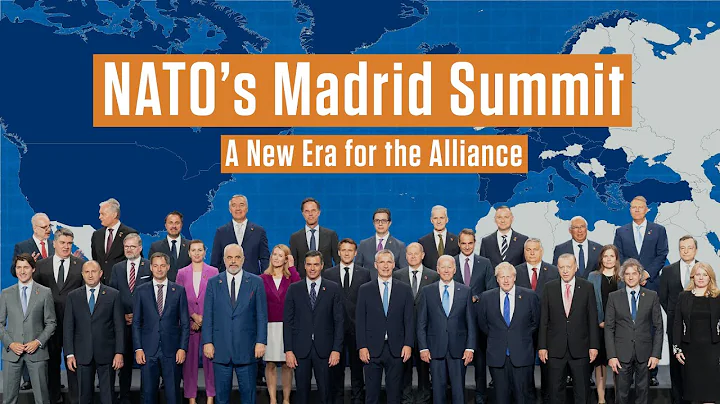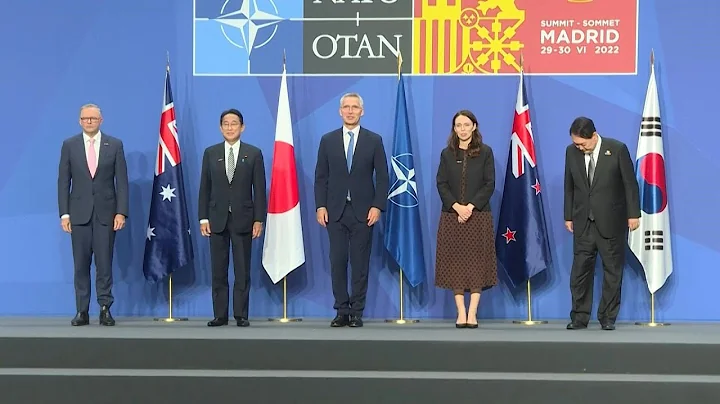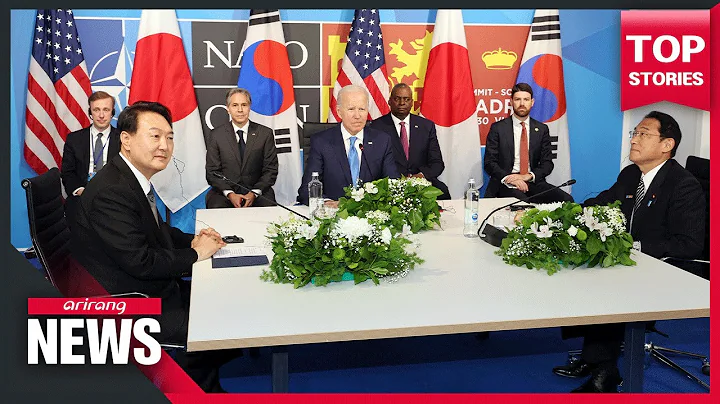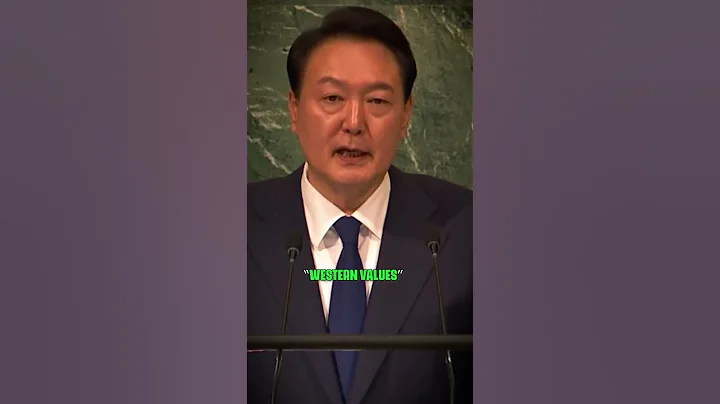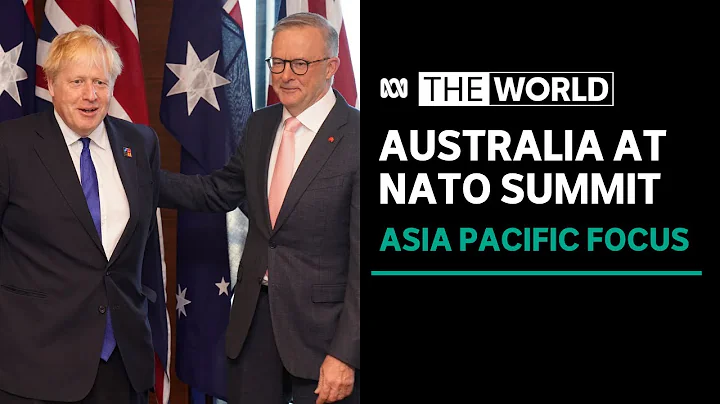Xilaiwang
The ideal and reality of South Korea and Japan participating in " NATO " is a very interesting topic in the field of international political games today.

1. New trends in South Korea and Japan’s participation in NATO
The emergence of a new strategic concept at the just-concluded NATO Madrid Summit indicates that NATO may increase its activities in the Indo-Pacific, especially strengthening cooperation with China’s neighbors Japan and South Korea.
People have noticed some new features of this year's NATO summit. Among them, South Korea, Japan, Australia, New Zealand were invited to attend for the first time as NATO partner countries in the Asia-Pacific region, which aroused concerns among countries in the Asia-Pacific region. It can be said with certainty that South Korea, Japan, Australia, and New Zealand, especially South Korea and Japan, should not appear at the NATO summit.
's attendance at the NATO summit at the end of June was South Korean President Yoon Seok-yue 's first overseas trip after taking office. It was also the first time a South Korean president attended a NATO summit.
Similarly, Japan is not a member of NATO. Fumio Kishida Not only did he actively participate in the NATO summit for the first time as the Prime Minister of Japan, he also performed a big show at the Madrid Summit to cheer for NATO's "diversion of troubles eastward" in an attempt to expand cooperation with Europe and turn the spearhead. Target China.

2. The idealization of South Korea and Japan's participation in NATO
Various signs indicate that the idealization of South Korea and Japan's participation in "NATO" is manifested in many aspects.
First of all, from the perspective of NATO, the strategic intention to win over South Korea and Japan to join NATO to quickly realize NATO's Asia-Pacific transformation is very obvious.
It must be pointed out that in addition to its continuous eastward expansion in Europe, NATO has also accelerated its "Asia-Pacific" process in recent years, trying to cooperate with the United States in promoting the "Indo-Pacific Strategy" and create the so-called "Asia-Pacific version of NATO." In the NATO 2030 reform plan, NATO clearly identifies Japan, South Korea, New Zealand and Australia as its four major partners in the Asia-Pacific region.
As we all know, NATO is a product of the Cold War and the world's largest military alliance under the leadership of the United States. It is a tool for the United States to maintain its hegemony and control the European security pattern. The real purpose of the U.S. “Indo-Pacific Strategy” that is becoming synonymous with bloc politics is to create an “Indo-Pacific version of NATO” and maintain the U.S.-led hegemonic system. It is based on this strategic consideration that John Kirby, strategic communications coordinator of the National Security Council of the White House, publicly stated on June 23: "It is very important for South Korea to attend NATO meetings."
NATO is obviously a North Atlantic military organization, but in recent years it has failed to It went to the Asia-Pacific region to show off its power, trying to copy the European group's confrontation routine to the Asia-Pacific region. The Madrid NATO summit adopted a new version of the "Strategic Concept Document", ignoring facts and deliberately creating group confrontation. The United States is trying to further promote NATO's Asia-Pacific expansion through dialogue with its Asian allies, trying to bring turmoil to the Asia-Pacific region.
Secondly, from the perspective of South Korea and Japan, they also have strategic intentions and practical actions to move closer to NATO.
The US-ROK alliance is a key factor affecting the political landscape of Northeast Asia . South Korea's foreign policy is largely subject to the US-ROK alliance.
South Korea became a global partner country for non-military cooperation with NATO in 2006. As the U.S. strategy toward China changes, South Korea, as a U.S. ally, has less room for policy choices toward China. In the "Reshaping U.S. Advantage--Interim National Security Strategy Guidelines" released just over a month after Biden entered the White House , South Korea ranked first in the U.S. alliance system, together with NATO, Australia and Japan. Together they have been identified as "the United States' greatest strategic asset."
The United States strategically attaches great importance to South Korea, which is highlighted by the complete lifting of the ban on South Korea's missile research and development restrictions. During former South Korean President Moon Jae-in's visit to the United States in May 2021, the two sides agreed to terminate the "Korea" that restricts South Korea's research and development of ballistic missiles. Guide to U.S. Missiles. At the same time, the "U.S. Indo-Pacific Strategic Framework" document clearly states that "South Korea is encouraged to play a greater role in regional security issues" and makes South Korea the target of expanding the "Quadrilateral Security Dialogue" between the United States, Japan, India and Australia.
In May this year, South Korea announced that it would join the NATO Cooperative Cyber Defense Center of Excellence (CCDCOE), becoming the first Asian country to join the organization as a full member.In order to strengthen cooperation with NATO, South Korea also plans to establish a representative office of South Korea to NATO in Brussels, Belgium.
Since the outbreak of the Russia-Ukraine conflict, Japan and NATO have increasingly interacted with each other. On May 16 this year, Yamazaki Koji, the top leader of Japan's defense attaché and chief of integrated staff, went to Brussels to attend the NATO Chiefs of Staff Meeting. This was the first time that Japan's integrated chief of staff attended the meeting.
From Japan's perspective, deepening its relationship with NATO will help it expand its influence in Europe. From the perspective of NATO, Japan is an easy target to bribe and win over, and it is an important fulcrum in building an "Asia-Pacific version of NATO." Both parties need each other and take advantage of each other.

3. South Korea and Japan will not succeed easily in joining NATO.
Judging from the actual situation of contemporary international political struggles, South Korea and Japan will not succeed easily in their attempts to participate in "NATO".
South Korean politicians believe that getting closer to NATO can create greater deterrent power against North Korea. However, South Korea's move will only stimulate North Korea and force it to carry out more nuclear and missile tests, making tensions even higher.
In fact, the participation of the leaders of South Korea and Japan in the NATO summit was not respected by Western leaders. South Korean netizens have given up on the footage of South Korean President Yoon Seok-yue being "handshaked without looking at each other" by Biden during the NATO summit. Korean netizens believe that they should not participate in a NATO summit that has nothing to do with South Korea. Some Korean netizens commented, "As a Korean citizen... my face is on fire."
If the South Korean and Japanese authorities insist on going their own way, catering to NATO's Asia-Pacificization is tantamount to inviting wolves into the house, which is an extremely unwise choice. Even South Korea and Japan will be subject to certain restrictions domestically.
If South Korea's new government gradually loses its diplomatic independence due to its dependence on the United States, South Korea's relationship with China will become more complicated. This will inevitably damage strategic mutual trust with China, and a price will inevitably be paid.
Asia Pacific is not a geographical category of North Atlantic . NATO claims that its defense zone will not break through the North Atlantic, but in recent years it has gone to the Asia-Pacific region to show off its power, trying to copy the routine of bloc confrontation in Europe to the Asia-Pacific, trying to find imaginary enemies in the Asia-Pacific region, and artificially creating conflicts and divisions.
China has opposed South Korea and Japan's participation in NATO from the beginning, and it is based on the overall relationship with China, South Korea, China and Japan.
It is true that at a time when the security and strategic situation in East Asia is undergoing drastic changes, stabilizing China-South Korea relations is of very important practical significance to both countries.
2022 marks the 30th anniversary of the establishment of diplomatic relations between China and South Korea. China is South Korea's close neighbor and long-term largest trading partner. If South Korea completely leans towards the United States, Northeast Asia will easily form a Cold War-like structure against China.
Sino-South Korean relations are a key factor in preventing Northeast Asia from falling into a Cold War. In addition to economic and trade interests, China and South Korea also have important security interests, especially on major issues such as the denuclearization of the peninsula and the prevention of chaos and war. This means that strengthening cooperation between the two countries is crucial to protecting their respective national interests. Although the two countries still have the obstacle of the "THAAD" issue, working hard to restore mutual trust and improve relations between the two countries is still the most rational choice for the two governments. It is the common interest of both countries to resolve various conflicts and disputes in Northeast Asia through dialogue and negotiation, prevent the deterioration of the security environment in East Asia, and especially avoid falling into a new Cold War due to the influence of major powers outside the region.
This year marks the 350th anniversary of the normalization of diplomatic ties between China and Japan. The relationship between the two countries has gone through ups and downs, but in recent years it has encountered many increasingly prominent negative factors. The challenges we are facing now may be the most severe in the past 50 years, and the relationship between the two countries has also reached a very important crossroads. China and Japan are also natural geographical neighbors that cannot be moved away. Whether China-Japan relations are good or stable will play a decisive role in peace and stability in Asia.
In addition, according to Article 10 of the NATO Convention, only European countries are eligible to join NATO. Therefore, South Korea and Japan are not eligible to join and are unlikely to join. However, the cooperation between the two parties will undoubtedly become stronger and stronger.
If South Korea and Japan insist on joining NATO, it will not be good news for the security of the Asia-Pacific region. Therefore, it will definitely arouse firm opposition and stubborn resistance from peace-loving countries and people in the region. Countries and people in the Asia-Pacific region will resolutely oppose any words and deeds that introduce military blocs and provoke division and confrontation.
China firmly opposes some forces inciting NATO to extend its reach further into the Asia-Pacific, causing instability in the region. China has made its position clear: "NATO has already messed up Europe. Stop messing up the Asia-Pacific and the world."
There is no doubt that China will never allow this situation to occur on its doorstep.
Relevant parties must not underestimate China’s just voice and firm will!
(The author of this article, Xi Laiwang, is the dean, distinguished professor and doctoral supervisor of the Institute of World Peace and Development at Henan Normal University, a researcher at the China Foundation for International Studies, deputy director of the Northeast Asia Cooperation Institute, a think tank on China and globalization, and a think tank on diplomacy Chief Consultant, People's Daily Former senior foreign correspondent)
